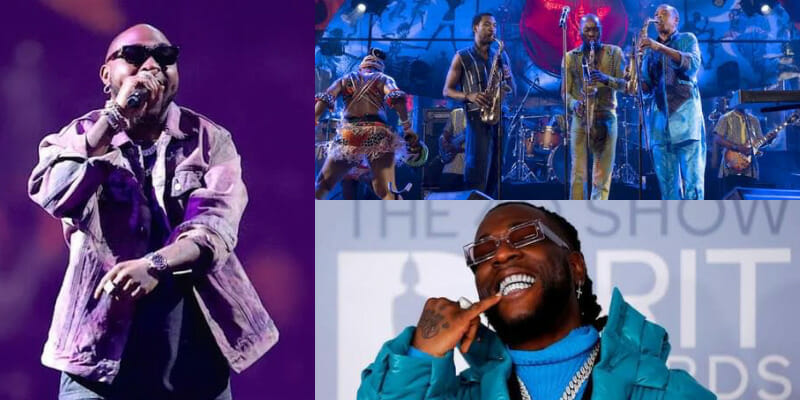
For years, the Nigerian music industry and its artists struggled to get international recognition, not because of a lack of talent but because of factors such as the language barrier and many more. In fact, the artists who get little international recognition are regarded as special simply because the world does not see Nigerian artists and their international counterparts as equal, no matter how successful the Nigerian artists are.
However, those days are gone, and this is all thanks to the work of some of the artists, music executives, and individuals who work night and day to position the Nigerian music industry on the global stage, putting it strategically in the face of the global audience that they couldn’t look away but start to realize the talent and class.
It is interesting to see international artists come to Nigerian artists by themselves for a feature, to see Nigerian artists ask that they be respected on the global stage, or even so to not let awards define how much of a great artist they are.
The big conversation, however, is that Afrobeats put Nigeria on the global stage – which is true to some extent – but there is a misconception on what Afrobeats truly is and what it is not.
What is Afrobeats?

Afrobeats is a music genre that defines the culmination and progression of Sub-Saharan African musical styles across time. It emphasizes percussion and intricate, energetic rhythms. There are subgenres that fall under the umbrella of Afrobeats. Afro-fusion, Afropop, and Afro-house are examples.
It is important to note that Afrobeats is such a big deal right now that the Grammys, one of the world’s most prestigious awards, is thinking of adding a voting category for it.
“We called in producers, songwriters, artists, executives and we had a virtual listening session where we heard from Afrobeats creators.
“We just talked about, ‘What are the different subgenres? What are the needs? What are the desires?”
If this plan works, this means that more Nigerian artists stand a chance of getting nominated in the Afrobbeats category rather than the previous lumping together with the ‘Global Music’ category that limits the chances for Nigerians.
This move is not without its disadvantages. Not all Nigerian music is Afrobeats and that might start to be an issue to be addressed as many do not even fully understand what Afrobeats is and what it is not.
What Afrobeats is Not

The first misconception we would like to address is that Afrobeat is not Afrobeats.
While many links the origin of Afrobeats to the legendary Fela Anikulapo Kuti, the difference between Fela’s Afrobeat and Afrobeats is with the former being a combination of jazzy contemporary music with a lot of instrumental flavors and the latter with the new electronic-styled and rhythmic-based music.
That is not to take away from the fact that Afrobeats borrows some elements of its sounds and delivery from Afrobeat. Some of these features include the incorporation of jazz-flavored tunes and a rhythmic baseline.
Afrobeats is a new wave on its own, leading the Nigerian music industry into a global dominance as we’ve never seen before. It won’t be wrong to say Afrobeats is the future but that will be at the detriment of sidelining the other genre of music we’ve known for so long, leaving it abandoned, and letting it die.
Afrobeats is not the only genre in Nigeria

On the chances of not sounding like a broken record, Afrobeats is not the only sound coming out of Nigeria. There are several other genres but the rest of the world does not seem to know that.
We have seen several interviews, videos and articles where all Nigerian musicians are grouped under the Afrobeats genre and that in some way can prove to be problematic simply because Nigeria has a diversified music industry with genres like Fuji, Apala, Highlife, to name a few.
The problems surrounding properly tagging different artists in the category they belong to is that sooner than later, there will be an issue of classification where we don’t know what belongs where.
Conclusion
The rapid growth of the Afrobeats genre is incredible and we are here for it, but we also need to not allow ourselves to be carried away with all the hype and buzz. Being able to properly classify our own music is what got the industry to where it is right now, and being a diversified industry with several genres will continue to be a factor that drives the industry’s growth.

Leave a Reply